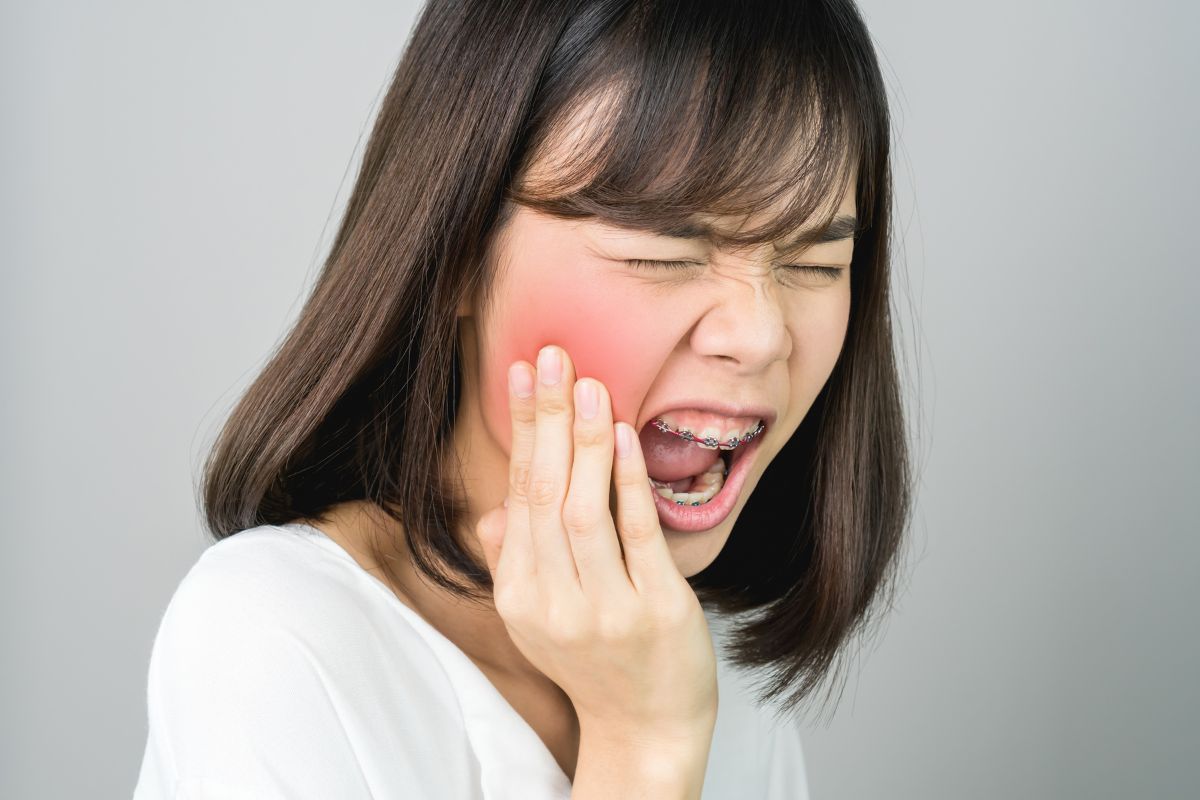
Swelling around your mouth, gums, or face can indicate a dental issue that requires immediate attention. Whether the swelling is due to an infection, injury, or tooth extraction, it’s essential to act quickly to manage it before seeing an emergency dentist. Reducing swelling not only eases discomfort but also prevents further complications. This blog will discuss practical ways to reduce swelling before visiting your emergency dentist.
Apply a Cold Compress
A cold compress is one of the most effective ways to reduce swelling. It helps constrict blood vessels, which minimizes inflammation and reduces swelling. This can also help ease the pain.
To apply a cold compress:
- Wrap ice or frozen peas in a clean cloth.
- Gently press it against the swollen area for 15 to 20 minutes.
- Repeat every hour to keep swelling under control until you can see your emergency dentist in San Antonio.
Never apply ice directly to the skin, which can cause frostbite or skin damage.
Keep Your Head Elevated
Keeping your head elevated helps reduce swelling by preventing blood from accumulating in the affected area. Whether resting at home or sleeping, use extra pillows to prop up your head.
Try to sleep or rest semi-reclined, keeping your head above your chest. This will help minimize pressure on the swollen area and promote faster swelling reduction. This simple step can make a significant difference before seeing your emergency dentist.
Take Over-the-Counter Pain Relievers
Over-the-counter (OTC) pain relievers, such as ibuprofen (Advil) or acetaminophen (Tylenol), can help manage pain and reduce inflammation. These medications are effective at reducing swelling and discomfort. However, always follow the instructions on the label for proper dosage.
Ibuprofen, in particular, has anti-inflammatory properties that help reduce swelling. However, aspirin can increase bleeding, especially if you are dealing with an injury or dental surgery site.
Rinse with Warm Saltwater
Rinsing with warm salt water is a simple and effective way to reduce swelling and promote oral health. Saltwater helps cleanse the affected area, flush out bacteria, and reduce inflammation.
To make a saltwater rinse:
- Mix half a teaspoon of salt into a cup of warm water.
- Swish the solution gently in your mouth for about 30 seconds.
- Repeat this process two to three times a day.
Saltwater is especially helpful if the swelling is due to a dental infection, as it can help control bacterial growth and soothe irritated gums.
Avoid Touching or Pressing the Swollen Area
If you have swelling due to a dental issue like an abscess, avoid touching or pressing on the swollen area. This can worsen the inflammation and push bacteria deeper into the tissue. Refrain from massaging or manipulating the swollen area with your fingers, as it may worsen things.
By leaving the area undisturbed, you can prevent introducing more bacteria and help reduce the swelling naturally.
Stay Hydrated
Drinking plenty of water helps keep your body hydrated, which is essential for reducing swelling. Proper hydration helps flush toxins and bacteria from your body, promoting faster recovery.
While it’s essential to drink water, avoid sugary or acidic beverages like soda, as they can aggravate the swelling and cause additional discomfort. Stick to plain water or herbal teas for hydration while you wait for your emergency dental appointment.
Apply Over-the-Counter Anti-Inflammatory Gels
Some anti-inflammatory gels can be applied directly to the skin or gums to reduce swelling and pain. These gels often contain ingredients like benzocaine or hydrocortisone, which provide temporary relief.
Before applying any anti-inflammatory gel, read the label carefully and follow the directions. Consider consulting your emergency dentist about the most suitable option for your situation.
Avoid Hot or Spicy Foods
If you are experiencing swelling in your mouth or gums, avoid hot or spicy foods. These can irritate the affected area, causing more inflammation and discomfort. Stick to soft, bland foods that are easy to chew and won’t trigger further irritation.
Cool or room-temperature foods like yogurt, smoothies, and mashed potatoes are good options that won’t exacerbate swelling.
Quick Actions for Effective Swelling Relief
Swelling can be a sign of a dental emergency that requires immediate attention from an emergency dentist. However, applying a cold compress, keeping your head elevated, and using other simple home remedies can reduce swelling and ease discomfort until your appointment. Contact your emergency dentist immediately if the swelling is severe, persistent, or accompanied by other symptoms like fever.
Timely treatment and proactive self-care can help reduce swelling and ensure you receive the proper care to address the underlying dental issue. Don’t hesitate to seek professional help as soon as possible to protect your oral health and comfort.



